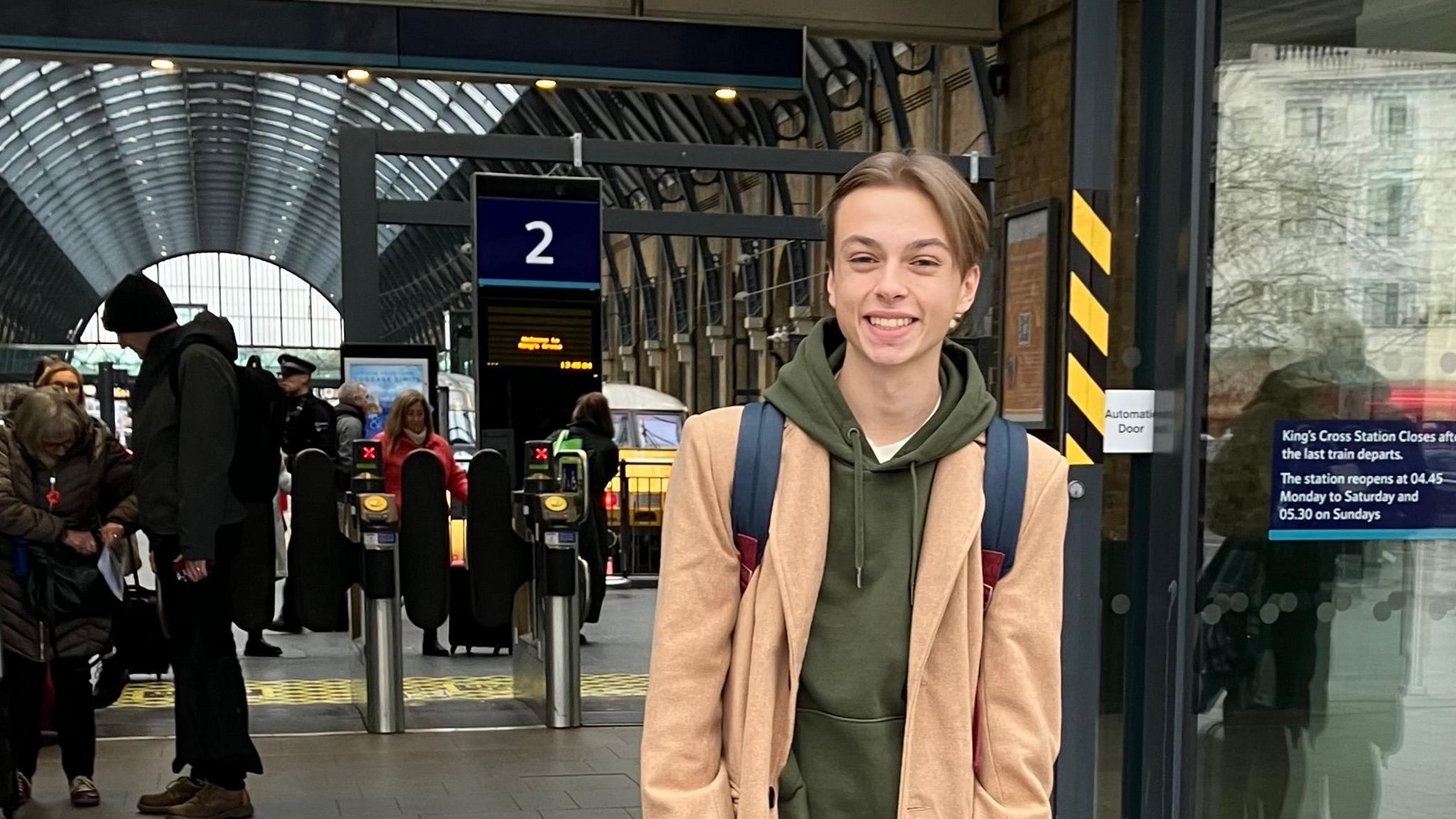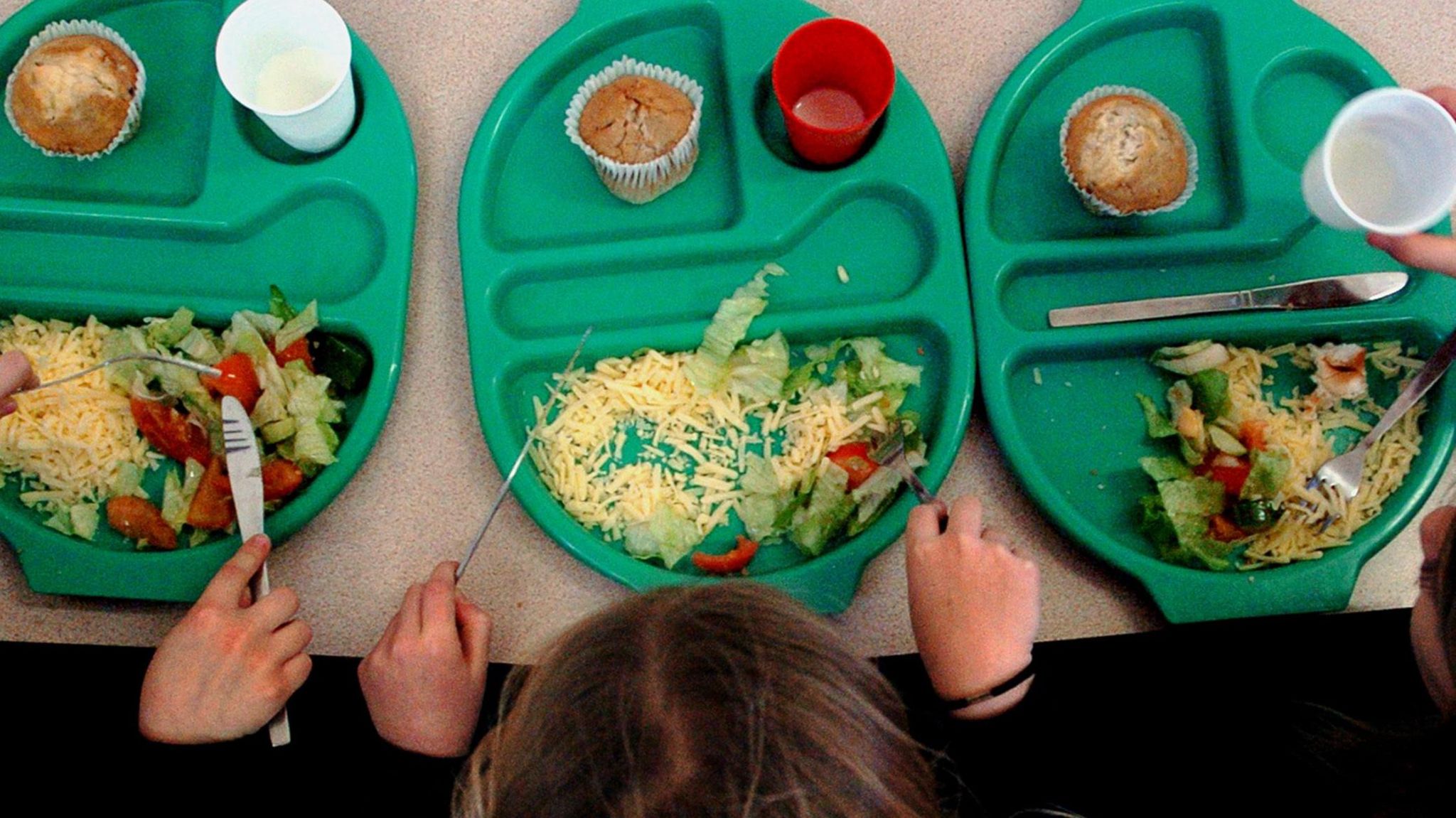
Written by Helen Richardson for the BBC
A teenager is calling for universal free school meals - warning "too many youngsters are going hungry".
Luke Hall, who represents South Tyneside on the UK Youth Parliament, says access to a nutritious lunchtime meal can improve mental health and help young people do better in school.
The 18-year-old's calls have been backed by North East MPs, saying it is "absolutely essential" to give all children equal opportunities.
The government says it has extended eligibility for free meals several times since 2010.
Access to free meals varies, depending on where people live.
In Wales all primary school children are eligible, while in Scotland all children are eligible until they are nine-years-old.
In England, free school meals are universal in reception, year one and year two. However, after that, parents need to be claiming Universal Credit and earning no more than £7,400 per year.
London Mayor Sadiq Khan has introduced universal free school meals for all primary school children from 2023 until 2025.
The college student recently travelled to Westminster to speak about the issue as part of his elected role, external, in which he represents the views of local young people.
 IMAGE SOURCE,LUKE HALLImage caption,
IMAGE SOURCE,LUKE HALLImage caption,
Luke travelled to London to speak in Parliament
At secondary schools, children get an allowance set by the government of £2.53 per day, but that figure has not increased with inflation.
Luke believes it is not enough to cover a full meal alongside snacks at other times of the day.
"Too many children are going hungry in school," he said.
"The allowance isn't enough. If you want a snack or a drink at break time you have to subsidise that from your own pocket.
"A free school meal is one of the most important factors in raising attainment and attendance, which is a major issue across the country.
"So many children and young people are in poverty or living on the poverty line and can't access this crucial support."
Luke's local MP, South Shields' Emma Lewell-Buck, supports the teenager's call, as does fellow Labour MP Ian Lavery, who represents Wansbeck in Northumberland.
He said: "I think it's absolutely essential that we give equal opportunity to children across the country.
"If Sadiq Khan can roll it out in London why on Earth can we not feed our children up here in the North?
"Kids cannot concentrate if they've got an empty belly. The kids are the future of our country. Let's feed the kids."
 Image caption,
Image caption,
The government says it has widened the eligibility criteria for free school meals
The Food Foundation, external charity has spoken to headteachers and school staff across England who are joining the call for free school meal eligibility to be extended.
Shona Goudie, policy and advocacy manager, said: “There are hundreds of thousands of children outside the capital who are living below the poverty line but don’t qualify for a nutritious school lunch.
"As we enter an election year, policymakers across the board should commit to ensuring no child in England is left to go hungry at lunchtime.”
The UK Youth Parliament and the Child Poverty Action Group are working together to ask all political parties to include universal free school meals in their election manifestos.
The Department for Education said the government understood the pressures many households are under.
A spokesman added: "This is why we have extended eligibility for free school meals to more groups of children than any other government over the past half a century - doubling the number of children receiving free school meals since 2010 from one sixth to one third.
“More widely we are providing an average £3,700 per household in cost-of-living support between 2022 and 2025, including through direct cost-of-living payments to eligible households, and increases to benefits.”